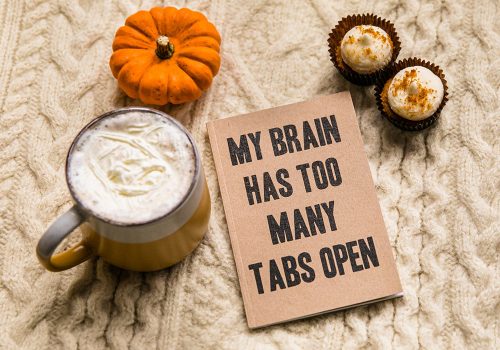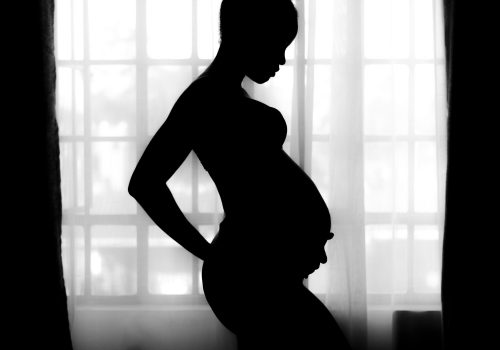DID SOMEONE SAY CBD FOR FERTILITY? YES, THERE'S A RING TO THAT!
HERE’S TO GETTING TO KNOW YOUR BABYMAKER
Anyone looking to increase their chances of getting pregnant will know that the idea of taking a supplement to help with that sounds particularly yummy. But while the notion of a magic pill is most certainly a dangerous one, we can turn to science to see how certain things can help us along. Before we take a look at any possible benefits of CBD for fertility, let’s take a dive and look deeper at the issues at hand and what other natural boosts women can take advantage of.
What Causes Fertility Challenges and Infertility?
Let’s break this down because you can only take action if you understand how your body reacts to certain situations and stimuli. There are a common set of factors that can lead to fertility challenges, and they are as follows:
- How you ovulate: Go back to science at school and you’ll remember that most women release an egg from their ovaries each month. But the other side of the story is that some of us have issues that halt the release of an egg or keep us on our toes, releasing an egg one month and then bypassing the next. Behind these issues are underlying causes like PCOS, thyroid problems, and premature ovarian failure.
- Scarring from surgery: If you’d had pelvic surgery of some kind, the scarring that may come with it can impact the fallopian tubes. As the highway to your ovaries and womb, the fallopian tubes are very important. Similarly, if you’d had cervical surgery the same risk is there.
- Your cervical mucus: Everyone remembers seeing demos of sperm swimming up to meet an egg from biology, but for this to happen, your cervical mucus needs to thin to open the way. If it doesn’t, it can create a sperm-like barricade.
- Fibroid growths: First thing to note, these kinds of growths are not cancerous, and secondly, between 20% to 80% of women develop fibroids during their reproductive years. So, they are common. Where it gets tricky is if they block a fallopian tube and as we know, that’s the route sperm and your egg need to take.
- Chronic conditions: You may have heard of endometriosis or pelvic inflammatory disease (PID). These chronic conditions can affect our fertility through scarring in the ovaries or fallopian tubes.
- Drugs and medication: There is a myriad of different types of drugs, both legal and illicit, which can impact things down there. Generally, we’re talking long-term use or high doses here, running from OTC medication like NSAIDs, like aspirin and ibuprofen, to some illegal drugs. In addition, chemotherapy and antipsychotic drugs have been linked to fertility.
- Your weight: Ongoing research is digging into the link between obesity and fertility but being underweight can change those things too. Currently, we know that overweight women are more likely to struggle with their fertility.
- Stress levels: It’s true, stress has all sorts of icky side effects in terms of our physical health, and fertility could be one of them. Perhaps this is our body’s way of protecting us from reproducing in dangerous times, but in this day and age, the biggest threat is usually something less primal. Just know that long periods of being stressed out can make getting pregnant more challenging.
One big fact that got our ears pricked is from Dr. Shanna Swan, an expert in fertility trends and professor of environmental medicine and public health at Mount Sinai school of medicine in New York City. She’s spoken at length about the way sperm count has more than halved for western men in the past 40 years and how chemicals play a “large casual role” in this.
The research she’s done shows that for women, chemicals like bisphenol A (or BPA as you’ve probably heard it) and phthalates are linked to fertility issues like decreased libido, a higher risk of early puberty, along with those also-not-nice-things such as premature ovarian failure, miscarriage, or premature birth.
The thing is, these chemicals are all around us, from plastic food containers to personal care products. As Dr. Swan also urges, this isn’t something that affects us in the here and now but can be passed onto eggs in utero, harming future reproductive health, and all this feels a little “Handmaid’s Tale,” to us.
The natural question next, is how can we positively affect our fertility? We know the risks, with some being more obvious than others, right. But don’t take that to mean we’re powerless here. We can make choices and implement changes to take control back. Speaking to your doctor is step number one. But here are some other things you can try.
Here’s the science – evidence supports that there’s a potential link between endocrine disruptors and reproductive challenges. So, what we’re talking about here, is those chemicals that Dr. Swan and many others have studied. They can be man-made chemicals or natural ones, and they can be found in everything from your food to your cosmetics. It stands to reason then that it’s good to limit these especially if you’re trying to get pregnant. You can do this through organic foods and “clean” beauty. Try opting for glass whenever possible and look for better beauty alternatives from EWG.
A well-rounded diet with all the food groups you need has the potential to enhance your ovulatory fertility. We’re talking foods with complete proteins, antioxidants, and healthy fats as well as those with a good source of iron and omega-3, and folic acid and vitamin B12. Salmon, salmon roe, eggs, and nuts provide omega-3 fatty acids which may improve blood flow to reproductive hormones and balance hormones. Ultimately, there’s a lot of ongoing research into what kinds of foods are best for boosting fertility, and while specifics may vary slightly, remember, the important thing is to eat healthily and stay hydrated with water.
Things like your body weight may also affect your fertility, and while this isn’t a big surprise to some, it’s interesting to figure out why. For example, underweight and overweight women both can experience irregular menstrual cycles, which is hurdle number one. That’s not to say you can’t get pregnant of course, but the extra part of the picture is that if your weight is outside of a healthy range, your fat tissues produce more estrogen, which is kind of like taking birth control and it gets in the way of ovulation and pregnancy. While we’re on the subject, overweight women are also more at risk of developing polycystic ovary syndrome (or PCOS), which is connected to infertility.
Under the lifestyle banner, another thing that you might not think about is your medication stash. Always check out whether they have the potential to impact your fertility before taking them, with common culprits being NSAIDs although there are others. It’s important to mention that you should always speak to your doctor before cutting any prescribed medications out though. At the same time, consider cutting out things like smoking (covered, we know, but just saying!), alcohol, and harmful substances you’d rather not name.
Easier said than done, but it’s important to note that stress does impact your reproductive health. While it’s not always possible to magic bullet stress (yeah, if we could, we would) you can manage it. Your emotional and mental wellbeing is just as crucial to your overall health as the physical stuff, believe us, and it has a genuine effect on our bodies. We know stress = raised cortisol for starters, and that stands in the way of the harmony between the brain and ovaries. We know, you know, but just remember that it’s ok to take some time, to rebalance, to start therapy, or take it slow. Whatever you need, prioritize that.
While there is still so much unknown about the endocannabinoid system and fertility, we do know that this critical regulatory network plays a role in fertility as well as female reproductive tissue. The endocannabinoid system is known to impact the female reproductive system through a variety of functions including folliculogenesis, ovarian endocrine secretion, embryo transport and implantation, and more. Since cannabinoid receptors are located throughout the female reproductive tract, it is believed that activating these receptors with either endocannabinoids or cannabinoids may boost ovarian function and follicle maturation. However, this is just a theory and there is yet to be strong scientific evidence to support it.
There are currently no studies directly on the effects of CBD and fertility as much of cannabinoid science is still in its infancy. This is due to both cannabis prohibition and the challenge of studying fertility often complicated by the fact that infertility can be a symptom of many conditions and various lifestyle choices. While some scientists hypothesize that CBD may offer some benefit due to its engagement with the body’s endocannabinoid system, we won’t be able to make any conclusive statements until more data is available.
Addressing the Root Causes of Fertility Challenges With CBD
CBD may help women manage certain preventative measures for boosting their fertility. Let’s take a closer look at how CBD may prove beneficial:
A celebrated stress-buster, CBD is known for its stress relief potential. We know that having a few things in your tool-kit to deal with stress and anxiety is key, and studies, as well as anecdotal evidence, show that CBD could be one thing to add to that stress-bust list. CBD may also activate serotonin 5-HT1A receptors, and this is the key to lowering the stress that can be linked to fertility issues.
Tip: If you want to see how true relaxation feels, try a soak with our Invigorating Bath Salts while sipping a cup of Harmonizing Bloom CBD Tea and watch the worries melt away.
Natural and without adverse side effects, CBD has promising pain relief properties, which could enable you to ditch any meds that could interfere with your fertility. This is backed up with countless preliminary and clinical studies, across a whole host of conditions.
Tip: Our Comforting Balm has been created as a quick pain buster. Simply apply to your temples for tension headaches and migraines.
Interestingly, preliminary data reveals a link between CBD and reduced food intake while increasing metabolism. Now, here’s the part where we say that no supplement is ever a replacement for a healthy lifestyle- CBD combined with the right foods and exercise, may aid healthy weight loss.
There’s more to CBD than you might first think, because if you get into the details, you’ll discover that full-spectrum CBD oils, like our Balance Tincture, contain antioxidants and essential fatty acids which are believed to be beneficial for fertility. These could help to boost your healthy diet, but here’s that note again – it’s never a replacement for balanced nutrition.
How to Use CBD for Fertility
Fertility challenges are complex and require help from a healthcare professional. It’s always important to speak to your doctor first before trying CBD, especially if you’re taking any medication. CBD should never be your only solution for infertility or fertility challenges- it requires a comprehensive plan addressing everything from nutrition to stress management for success.
Cannabinoid therapy varies from person to person, making self-experimentation important. For stress and pain management, it’s best to start low and slow until the desired effects are achieved. For metabolic benefits, you’ll need to use CBD alongside a healthy diet and exercise plan. As with any new supplementation, keeping a journal to track your experience, dosage, and frequency can be very helpful.
Please note, there is not enough data available to support CBD’s safety in pregnant and nursing women. We recommend discontinuing CBD use once pregnant or speaking to your doctor for further guidance.
Press Pause CBD for Fertility
Put it this way, we’re women, and we get it. We know only too well the complicated nuances of our body chemistry and the challenges we uniquely face along our fertility journey. All our products are made by women, for women, with premium organic CBD ingredients, so if you ever need help picking the right product for any health concern, we’re always here. Shop our fertility wellness products or contact us anytime!







